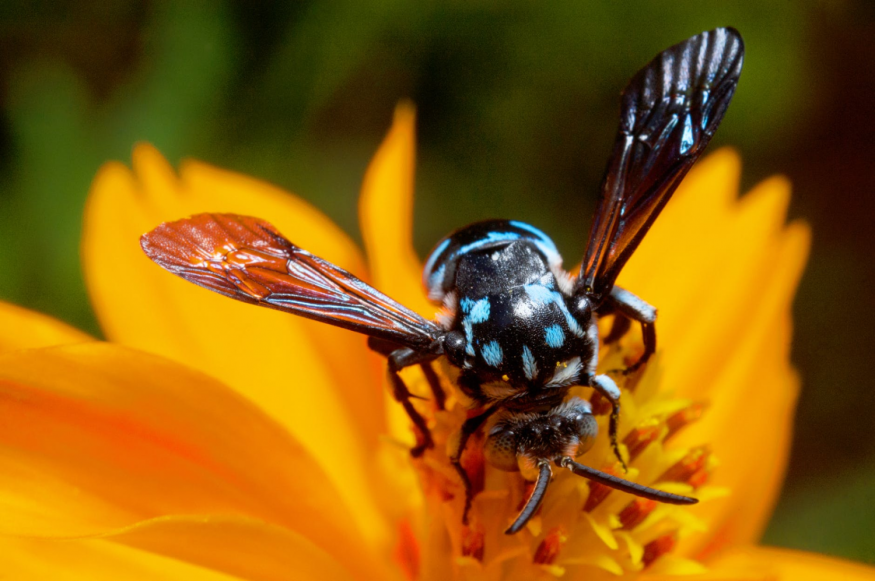
When you hear the word "wasp", the thought of being stung might come to mind. Yet, they don't all want to hurt you. You might think of them as a nuisance or even consider them to be a major pest. Yet, in our daily life, wasps are a necessity.
They're part of a family called Vespidae. Other members are hornets and yellow jackets, which resemble bees. These are wasps that are familiar to us. They're also known as the social wasps.
Wasps Habitat
In North America, wasps live in open gardens and grasslands, like orchards and meadows. They're also known to build nests in suburban areas. You might even have found one in your backyard. These nests normally hang from a structure.
Wasps use plants, the bark of trees, and saliva to make a pulp that resembles paper and then use this material to make their nests. They prefer to build their homes in the dark and create double layers to keep the light out where there's too much. How smart is that?
Every year new nests are built as they disintegrate during the winter, and some make them in the ground, which is more durable. You'll find a wasp species in South America who created such sturdy structures in the ground during the 1700s that they still exist today.
Behavior
These critters can become very aggressive if they feel threatened. Bees might sting you once, but a wasp, when threatened, can sting you multiple times. The yellow jacket is one of the aggressive varieties.
In North America, these wasps are the only ones that have a large number of offspring. Coming near their nests, interfering with their food, or just disturbing them could cause them to defend themselves.
Removing a wasp nest by yourself isn't recommended; navigate to this website for some helpful tips.
Ending a single wasp's life can also be a problem. When killed, they give off an odor, which others pick up as a warning and sign to attack. So the next time you have an annoying wasp circling you in your garden, think twice before swatting it. Alternatively, if it's solo, try trapping it in a jar and set it free elsewhere.
Suppose you're trying to avoid wasps while in your garden; steer clear from wearing white or yellow. Insects are attracted to these two colors. They can be particularly annoying towards the end of summer and into fall.
During this period, their tastes alter a bit, and they look for sweet things. This behavior would explain why they somehow make their way into your soda can.
Benefits of Wasps
Before you make plans to destroy the nests in your garden, consider the benefits of having them around. Wasps, specifically hornets and paper wasps, are regarded as a form of pest control.
Their daily diet consists of various insects, which would be considered pests, like; houseflies, ticks, blowflies, and crickets. Having the wasps around benefits us by eliminating the parasites that may destroy our gardens.
Another advantage of a wasp is that it helps with reproducing plants. They're the only insects able to pollinate fig trees. The wasp crawls inside the flower, where it ends up dying inside.
In Closing
Wasps shouldn't be underestimated or taken for granted. They might have their faults but make no mistake; they're also quite beneficial. If it wasn't for wasps, we might've had an insect infestation of note.
Finding a way to pollinate figs when bees couldn't needs applauding. This wonder, together with the way they construct their hives, certainly classifies them as smart insects.
Yes, they're quick to sting, but only if they feel threatened by your actions. One could call it self-defense. It's therefore up to you to decide whether they're your friend or foe.
© 2026 NatureWorldNews.com All rights reserved. Do not reproduce without permission.





